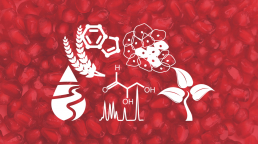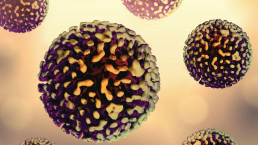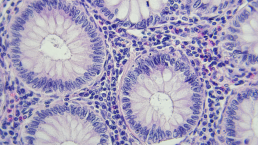
Insights from MDPI Top 5 Picks—June
This month, we saw an exciting mix of subjects hit the top of our rankings for the most-read manuscripts in June 2022. Below, you can find a list of the top 5 papers, along with some insightful comments from some of their authors.
1. Recent Advances and Challenges in Uveal Melanoma Immunotherapy in Cancers
“Uveal melanoma (UM) is the most common primary intraocular malignancy in adults. Although it can be controlled locally, approximately 50% of patients still develop metastases. To date, there have been no standard therapeutic strategies for the prevention or treatment of metastases. Unfortunately, chemotherapy and targeted therapies only induce minimal responses in patients with metastatic UM, with a median survival time of only 4–5 months after metastasis detection. Immunotherapy agents, such as immune checkpoint inhibitors, have achieved pioneering outcomes in CM but have shown limited effects in UM. Researchers have explored several feasible checkpoints to identify options for future therapies. Cancer vaccines have shown little in the way of therapeutic benefit in patients with UM, and there are few ongoing trials providing favorable evidence, but adoptive cell transfer-related therapies seem promising and warrant further investigation. More recently, the immune-mobilizing monoclonal T-cell receptor against the cancer molecule tebentafusp showed impressive antitumor effects. Meanwhile, oncolytic viruses and small molecule inhibitors have also gained ground. Our review highlights recent progress in burgeoning treatments and provides innovative insights on feasible strategies for the treatment of UM.”
– Dr. Yihang Fu, Dr. Wei Xiao, and Dr. Yuxiang Mao
2. The Lipid Energy Model: Reimagining Lipoprotein Function in the Context of Carbohydrate-Restricted Diets in Metabolites
This paper has made the top 5 most-read articles for the second month running. You can find a statement from the authors in last month’s feature.
One of the authors, Dr. Nicholas Norwitz, has recently launched a new Special Issue, alongside his co-Guest Editors, entitled The Metabolomic Landscape of Carbohydrate Restriction, which will follow on from this impactful research.
3. Red Blood Cell DHA Is Inversely Associated with Risk of Incident Alzheimer’s Disease and All-Cause Dementia: Framingham Offspring Study in Nutrients
“Docosahexaenoic acid (DHA) might help prevent Alzheimer’s disease (AD).”
“in a cohort of dementia-free participants from the Framingham Heart Study aged 65 years and older, we observed that those with a baseline RBC DHA proportion above 6.1% (top quintile) had nearly half the risk of developing AD (and all-cause dementia), and had an estimated 4.7 extra years of life free of AD compared to those with an RBC DHA below 3.8% (bottom quintile).”
“Our results, which concur with a growing experimental research foundation, suggest that an increased DHA intake may be a safe and cost-effective strategy in preventing AD in specific populations.”
– Extracts taken from study
4. AR-AI Tools as a Response to High Employee Turnover and Shortages in Manufacturing during Regular, Pandemic, and War Times in Sustainability
“When Mr. Andrzej Szajna (DTPoland Ltd.; Chief Revenue Officer & Deputy CEO) approached me with a proposal to write an article on the topic of AR-AI Tools as a response to high employee turnover and shortages in the field of manufacturing, I had no doubt that this should be an obligatory effort. We have been working on this topic for several years, and it has been of our continuous interest, stimulating the planning of future projects and research hypotheses towards further research problems. We have set ourselves the goal of highlighting this matter on the ground of needs occurring in our local geographical area, where we are living our lives. The article connects the relevant problems of ongoing war and the daily challenges of entrepreneurs in Central and Eastern Europe and elsewhere in the world.”
– Dr. Mariusz Kostrzewski
“For the last 10 years, Europe has faced three major events that significantly influenced social, economic, and political areas. These were the migration crisis that started in 2015, the COVID-19 pandemic arising in 2020, and Russia’s invasion of Ukraine in 2022. The sudden and unprecedented nature of these events left no room for preparations and the effects will be mitigated for a long time. Scientists and business representatives must learn from these situations and take responsibility for building a better future! That’s exactly what I am doing with Prof. Kostrzewski and the Digital Technology Poland company – we create high-tech support tools that influence sustainability in working environments.”
– Andrzej Szajna
5. Establishing Stage–Discharge Rating Curves in Developing Countries: Lake Tana Basin, Ethiopia in Hydrology
“Accurate discharge data aid in more efficiently utilizing the donor and government funds provided to the water sector. Stage–discharge measurements are infrequent in most developing countries, and rating curves are not updated after major storms. In this manuscript, a technique is developed that uses the infrequent stage–discharge measurements to develop a rating curve in which the offset varies with time. The technique was applied to the Lake Tana basin in the Ethiopian Highlands.”
“The unique rating curves that account for temporal riverbed changes can aid civil engineers in the design of reservoirs, water managers in improving reservoir management, programmers in calibration and validation of hydrology models and scientists in ecological research.”
– Extracts taken from study
If you want to know more about any of the studies mentioned in this article, you can read them for free on the MDPI website.










